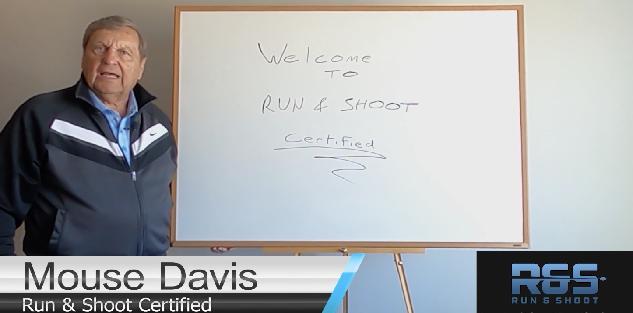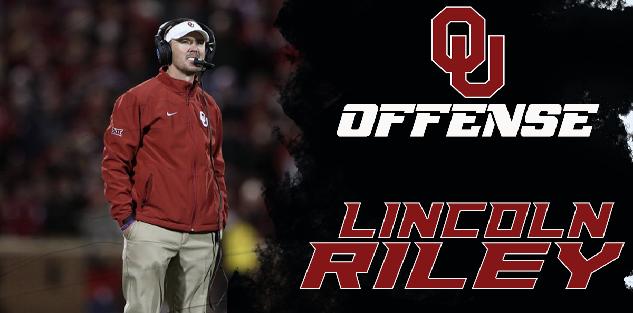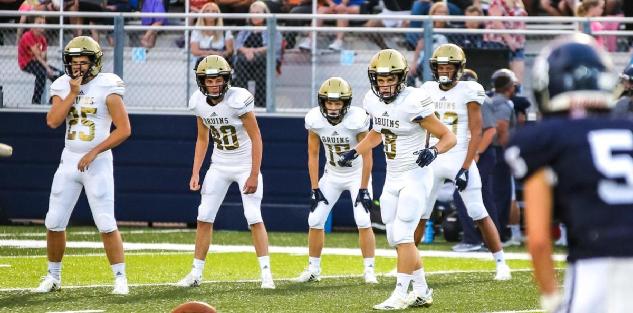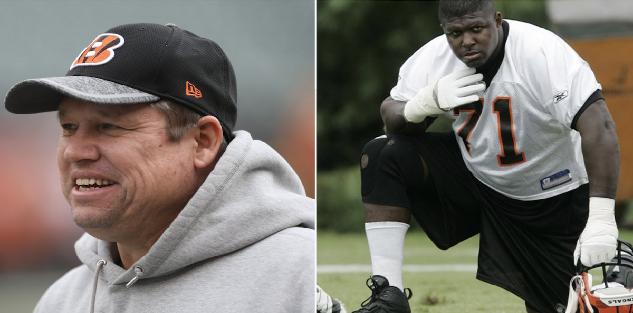Featured courses
- Jim Thorpe Award Winner Jahdae Barron’s 4 Drills for Dominating Receivers by Grant Young
- 5 Tips to Improve Your Football Game Plan by Andrew Dohre
- Game Changer RPO Football : Wing-T Offense by Andrew Dohre
- Mastering the Pass Rush: Expert Drills and Progression Tips from UCLA’s Coach Ikaika Malloe by Andrew Dohre
- 3 SPO’s to Protect the Passing Game and create opportunities in space by Keith Grabowski
- The Art of Running the Corner Route- Coaches and Players Prespectives by CoachTube Staff
- Evolve your Defense with Quarter, Quarter Half to Stop RPO by Coach Grabowski
- Top 10 College Football Players to Watch for in 2022 by Alec Burris
- Clemson vs. Syracuse Matchup of the Week by Keith Grabowski
- Sprint Out Passing: Move the Pocket for Success by Keith Grabowski
- Unlocking the True Potential of Your Special Teams Play by Keith Grabowski
- The Most Important Components of Air Raid by Keith Grabowski
- 4 Plays that Benefit from Bunch Formations by Keith Grabowski
- 3 Third Level RPOs for Explosive Plays by Keith Grabowski
- The Role of the Screen Game in Explosive Offense by Keith Grabowski
- The Chess Match: Win on the Perimeter (Part 1) by Coach Grabowski
- Unlocking the Power of Gap Manipulation to Limit Explosive Plays by Keith Grabowski
- TCU’s 3-3-5 and facing bigger personnel by Keith Grabowski
- Elevating Your Team: Strategies from Coach Matt Ruhle by Keith Grabowski
- 7 RPO’s for your playbook by Coach Keith
- Beyond Quarters - The Need For Additional Coverage Concepts by Keith Grabowski
- 5 Core Offensive Priniciples for a Winning Football Formula by Keith Grabowski
- Win Downfield - Attacking Different Areas Deep with 3rd Level RPO by Coach Grabowski
- WAKE FOREST’S UNIQUE RPO GAME by Keith Grabowski
- Adjustments to Defeat the Tite Front by Keith Grabowski
- Attack Defenses with The Versatile Y-Cross Concept by Keith Grabowski
- Play Action is a Cheat Code! - 5 Play Action Concepts to Increase Your Expected Points by Keith Grabowski
- Question from Rutgers OC - What does your offense say about your coaching? by Keith Grabowski
- Gap Schemes vs. Tight Fronts, Play Action Shots and Misdirection by Coach Grabowski
- Setting up your young Qb for success by Keith Grabowski
- The Hot Gap plus 3 Gap Scheme RPO’s to Stress the Defense by Keith Grabowski
- How Football Coaches Can Build A Game-Changing Special Teams Unit by Grant Young
- Master the Art of Quick Passing for High Completion Percentages by Keith Grabowski
- How to Be an Influential Football Coach by Grant Young
- How to Maximize Tackling Efficiency within Scheme by Keith Grabowski
- Offensive Drills of the Week by Keith Grabowski
- How a Stoplight Can Make Your Fly Sweep Takeoff by Keith Grabowski
- Keep your Drills Fresh and Your Skills Developing - Offense by Keith Grabowski
- Coach Kevin Kelley, Outside The Box by Keith Grabowski
- Want your defense to get off the field after third down? Sims and Creepers are the answer! by Keith Grabowski
- Create More Turnovers with Circuit Training & Win More Games! by Keith Grabowski
- Devastate the Defense with TE RPOs by Keith Grabowski
- Red Zone adjustments by Keith Grabowski
- CoachesClinic.com Featured Matchup: Cincinnati vs Indiana by Caleb Hopkins
- 3 NFL ZONE RUN PLAYS FROM WEEK 7 by Alex Kirby
- Sonny Dykes Teaches You How to Put Together an Offense by Coach Grabowski
- FIVE REASONS TO RUN THE 3-3 DEFENSE by Alex Kirby
- Getting Your Defense Ahead - 1st and 2nd down Pressures from Noah Joseph by John Grayson
- Chad Morris Teaches How To Builds an Offense by Coach Grabowski
- Get Your Offense a +1 With the QB Run Game by Coach Grabowski
- Are You Causing a 14 Point Turnaround...Against Your Team? by Coach Grabowski
- Learn How to Improve Your Offense with USC’s “Harrell Effect” by Coach Grabowski
- The Power of Influence - Rick Jones, Mizzou by Coach Grabowski
- Easy QB Runs to Drive Defenses Crazy by Ryan Eisenberger
- How many different ways can you make the defense cover everyone? by Ryan Eigenberger
- Win Passing Downs with Creepers and Sims by Coach Grabowski
- Always have a plan to play your best 11 by Keith Grabowski
- Dominate the Defense with Double Teams by Coach Grabowski
- Buffalo OC teaches his model for game planning by Keith Grabowski
- Put your 3 Deep Coverage in a Better Position with Zone Alert Rotations by Coach Grabowski
- 5 Keys to Using Trick Plays by Coach Grabowski
- Learn from 'Juggernaut' Offense by Keith Grabowski
- Bob Wylie - Offensive Line Breakdowns by Coach Grabowski
- Utilizing the Hybrid Linebacker to take away Offensive Advantages by Coach Grabowski
- Always have a plan to play your best 11 by Keith Grabowski
- Coachesclinic.com Featured Matchup: #6 Oklahoma vs #21 Texas by Caleb Hopkins
- Easy for You - Difficult for Them Adjustments by Keith Grabowski
- Coachesclinic.com Featured Matchup: Davidson College vs Presbyterian by Caleb Hopkins
- Week 5 National High School Football Rankings by Keith Grabowski
- Protecting Aaron Rodgers (and your own QB) by Caleb Hopkins
- Defensive Drills of the Week by Keith Grabowski
- Woo Pig - Add a wrinkle with these Arkansas Downhill Run Variations by Keith Grabowski
- Coachesclinic.com Featured Matchup: #7 Cincinnati vs #9 Notre Dame by Caleb Hopkins
- Offensive Drills of the Week by Keith Grabowski
- Coach Jason McEndoo Teaches #12 Oklahoma State’s Top Running Play by Keith Grabowski
- Adjustments - Attach Screens to your best plays, defend star receivers, & movement to stop the run by Keith Grabowski
- Coachesclinic.com Featured Matchup: Army vs #16 Wake Forest by Caleb Hopkins
- How To Implement A Running-Back-By-Committee Scheme by Brandon Ogle
- How To Become The Most Feared Offensive Lineman In Your League by Chrisian Benavides
- Wylie, McNally and Alexander Key Coaching Points on the Wide Zone Play by Keith Grabowski
- #21 Coastal Carolina’s play that is a whole offense within itself by Keith Grabowski
- 4 Plays that Benefit from Bunch Formations by Keith Grabowski
- Best Mesh Concept Plays by Ron McKie
- Forming Families For Football by Darryl Page
- Top 5 Things Coaches Should Strive To Get Out Of Spring Camp by Darryl Page
- 10 Tips To Know Before Attending Football Camps by James Breland
- Offensive Line Drills by Rick Bouch
- You’re a captain, now what? 5 Tips to bring your team together and establish yourself as a true leader by Lester Crafton
- COACHING THE 4-2-5 DEFENSE VS SPREAD TEAMS by Alex Kirby
- Gifts From Grinch by Coach Grabowski
- A Package to Help You Win Mid to Late Season by Coach Grabowski
- The Future of American Football: How to Run the Spread Offense by Coach Scott
- Chris Ash teaches Longhorn Tackling by Coach Grabowski
- The misunderstood Yet Powerful Run Scheme - Duo by Coach Keith
- THE GUS MALZAHN QUARTERBACK COUNTER PLAY by Alex Kirby
- FIVE TIPS FROM GUS MALZAHN ON HOW TO BUILD YOUR PLAYBOOK by Alex Kirby
- LITTLEST KID ON THE FIELD TRUCKS LINEMAN – YOU CAN’T MAKE THIS STUFF UP by Jacob
- HOW TO MAXIMIZE YOUR OFFSEASON FOOTBALL TRAINING by Dominic
- BAD CALL, GREAT COACH: THIS IS WHY PLAYERS LOVE PETE CARROLL by Jacob
- How to Get Recruited for Collegiate Sports by Brandon Ogle

You’re a captain, now what? 5 Tips to bring your team together and establish yourself as a true leader
If you’ve been named captain of your team, your coach and teammates are expecting you to be a leader. But what does it even mean to be a leader? And how do you do it? Here are five tips to help you bring your team together.
1. Lead by example in terms of effort.
This is probably the one you’re already best at doing. Captains generally tend to be not only good athletes, but great workers.
An old leadership adage goes like this, “Your team will do what you do well half as well and will do what you do poorly twice as poorly.”
So if you are the leader of your team and you are skipping your last two reps in the weight room, the people you lead will be skipping four. If you slack off on the last sprint of practice, your teammates are slacking off on the last two.
If you are a defensive captain who has put in work in the film room and know the two plays an offense is likely to run out of a formation, the people you lead may know one.
Your teammates are looking to you to show them what’s possible. Your effort will pave the way.
2. Don’t worry about making mistakes.
The reason rule #1 came first is because although it may seem harder to always give your best effort, it actually makes things a lot more fun for you.
People will forgive all of your mistakes if you are giving 100%, but if you’re slacking, they will blame you for their lack of success.
I remember a teammate of mine playing offensive line who jumped the snap count and came off the line so low, fast and ferociously he knocked the defensive lineman from a four point stance directly backwards onto his rump. Nobody else moved.
It was just my teammate standing over the d-lineman he’d destroyed realizing he’d jumped the snap count. Did he cost our team five yards? Yes. However, twenty years later I can’t even remember who we were playing or if we won the game, but I still remember that play as clearly as if I’d watched it on Youtube five seconds ago. Why? Because although he made a mistake, he did it going full speed.
Your teammates will remember the effort you give far longer than they will remember the yards you gain or lose. If you’re afraid to make a mistake, you’ll never go full speed. If you don’t go full speed, you’ll never learn from your mistakes.
3. It’s easier to tear people down than build people up.
As a young leader it is easy to confuse “leadership” with “being a boss.” Remember all of your teammates play with you voluntarily. Nobody likes to be “bossed around”, even if it’s “for their own good”, or “for the good of the team.”
Basically, people hate to be bossed, but love to be led. Instead of looking for all of the ways your teammates are screwing up--that’s your coach’s job--instead look for ways they are improving. A simple way of putting this is, “Catch your teammates doing something right and acknowledge them for it.”
When you form the habit of catching your teammates doing something right and letting them know about it, they will begin to see that you believe in them and want to give their best effort.
My coach did a great job of using my teammate’s penalty as a teaching lesson about how to explode off the line instead of being angry with him for costing us five yards, and it inspired the whole team to play harder.
Tim Tebow also provided a great example of living into this principle in a 2011 game vs. the Chicago Bears. During the third quarter of this game, Tebow threw a beautiful pass to Demaryius Thomas which would have been a sure touchdown, tied the game and given the Broncos momentum.
Thomas dropped the pass.
Instead of ripping into Thomas, Tebow went to him and said, “Don’t worry about it, you’ll catch the game winning touchdown.” There was no game winning touchdown, but Thomas did score in the fourth quarter leading to an improbable come from behind victory.
A few weeks later in a playoff game against the Steelers, Tebow and Thomas connected on a game winning 80 yard touchdown on the first play of overtime.
It would have been easier for Tebow to remind Demaryius of what a great throw he’d made and blame Demaryius for letting the team down, but instead he forgave him immediately and let him know he believed in his ability for the future. And that belief paid off when it mattered most.
Look for the best in people, avoid taking the easy way out and building yourself up while putting other people down, and catch your teammates doing things right. Before you know it, you won’t have to yell at your teammates to do their best--they’ll want to follow your example because they trust you and believe in you because you forgive them and believe in them.
4. Help your coach communicate the message.
If you are the captain of your team it means you are trusted by both your teammates and your coaches. A quick, easy way to bond your teammates together is by talking trash about your coach. There is also no quicker way to destroy your team.
At some point every player has a problem with their coach. It is easy to turn this dislike into a reason to not give your best effort.
Instead of engaging in the coach-bashing, listen to what is being said and take mental notes of it. You don’t need to defend your coach, but it is important to not be “against him.”
Remember as a leader, people will do the things you do well half as well and will do what you do poorly twice as poorly. So if you complain about your coach twice, they will do it four times. However, half of zero is zero--so if you don’t complain about your coach, and follow the other suggestions above, it won’t take long for your teammates to catch on, accept responsibility, understand coach is only trying to help them become the best players they can be and start working together as a team.
Instead of joining in the complaining, try talking to your coach and ask him how he’d have you handle the situation. There’s a good chance he or she doesn’t even know how the players feel. Or maybe it’s part of their plan to unite the team by being a villain. Although it may not be a great plan, it’s important for you as the captain to know where your coach is coming from.
Ask your coach for a half hour or so each week to share openly what you feel is going on with the team so you can stay on the same page moving forward.
5. Your teammates don’t care how much you know until they know how much you care.
No matter how great of a player you are, your teammates won’t follow you if they don’t believe you care about them.
Although it may not be obvious at first, the four steps listed above are all designed to establish you as someone who can demonstrate you care--you’re willing to do your best for them, you forgive them when they make mistakes, you won’t talk trash about them and you can communicate their concerns with your coach.
Here are two more concrete ways to establish great relationships with your teammates. Both will take a little time--probably more time than you feel like you have, but if you can find a way to make these things happen, you’ll create the kind of bond that lasts a lifetime and is capable of overcoming superior talent on the field.
The first recommendation is this--have dinner, or at least visit with as many of your teammates as possible in their homes. When we are young we have a tendency to believe everyone grows up just like us. By visiting someone in their home, you gain a much deeper appreciation for what their life is like after school and after practice.
Does your teammate have a strange, strong reaction you don’t understand when coach criticizes him? Maybe that’s because his dad does the same thing.
Have a teammate who always seems to put too much pressure on himself? Maybe his parents think his only chance of going to college is a football scholarship.
Visiting your teammates and their family in their home isn’t for the purpose of your changing someone’s family dynamics, it’s for increasing your level of understanding and empathy for them.
The second idea for bringing your teammates together is called a “packet party.” Set up a time for just you and your teammates to spend a night together--somewhere away from the distractions of school, dating and family responsibilities.
Before the party, come up with a packet you give to each person on your team (or if you’re on a big team--each person you have been chosen to lead). In this packet is a list of ten questions they are to think about or fill out before they come.
Some examples of questions would be:
1. Why do you play football?
2. Do you plan on going to college? Why or why not?
3. What has been the biggest disappointment you’ve faced so far?
4. What are some of the things that scare you the most about the upcoming season?
5. What do you want to be when you grow up? Why is that important to you?
6. What kind of things can you do nobody really knows about?
7. What’s something you’re really good at doing?
8. How can being a part of this team help you reach your goals?
These are all just examples, you can come up with your own list, but don’t shy away from the scary stuff. If your teammates know you can be trusted with knowing about parts of their lives nobody else knows about, they will certainly trust you to lead them to victory on the football field. People don’t care how much you know until they know how much you care.
---
If you’ll practice doing the five things on this list, you will be more than just a captain who can inspire his team to greater results, you’ll develop yourself into the kind of person people trust when it matters most. Football is a game most of us play for a few years, but with your leadership, it can be an experience you and your teammates remember and love for the rest of your lives.










